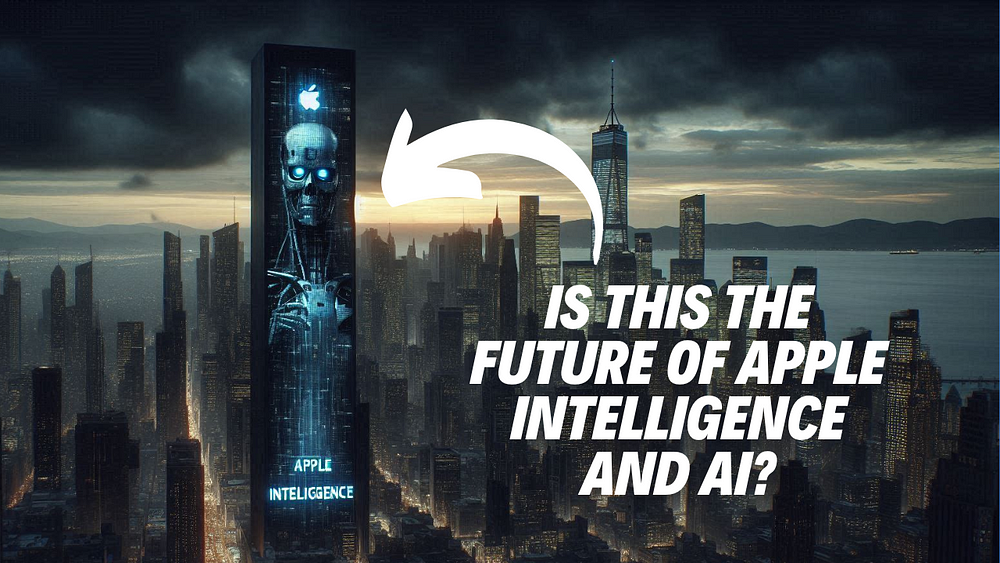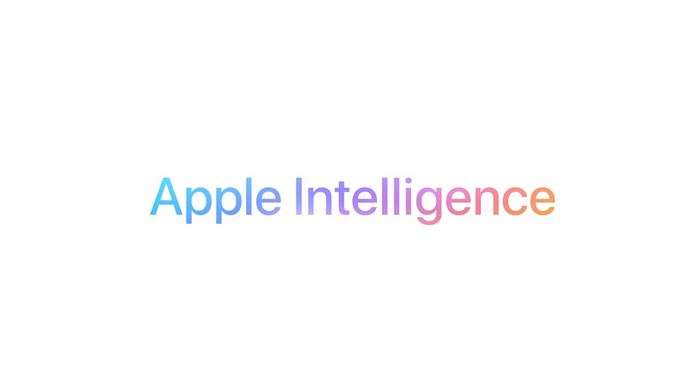Is the concept of Artificial Intelligence in the modern broadest concept of the phrase a good or a bad thing?

There is a public sense that whatever the future of AI has in store, one of those things involved is AI potentially taking jobs? When I say jobs, I’m looking at it from the niche of the creator. How is it going to affect what you and I do creatively?

During the recent WWDC, Apple introduced Apple Intelligence, a seamless integration of advanced AI and machine learning technologies designed to revolutionise everything from Siri to enterprise solutions in devices that we use every day.
But what does this mean for the average person? This innovation has already transformed our interactions with technology, but where could it lead us in the future?
AI isn’t a new thing, it’s been around for a while, automating repetitive tasks, streamlining operations, enhancing your photos, making your audio sound better when you’re in a noisy environment. All of those things, all down to some form of AI within whatever device your using, from your phone, computer, headphones, your Amazon Echo, anything techwise you can think of probably is doing some form of AI.
But with enhancements like Apple Intelligence, AI is stepping into roles that require complex decision-making and creativity. From natural language processing in Siri to the advanced camera functionalities in our iPhones and iPads.
Apple Intelligence aims to enhance our daily experiences. But this is just the beginning. On the side of positivity, AI can handle tedious, complex and possibly some dangerous tasks, increasing efficiency and safety. For instance, in manufacturing, AI-powered robots can work tirelessly without risking human injury. AI has the potential to revolutionise our lives for the better. We’ve seen it in everything from medical diagnosis to self-driving cars.
Imagine a world where doctors are assisted by AI that can analyse vast amounts of medical data, leading to a more accurate diagnosis, personalised treatment plans and possibly cures to conditions that experts have poured hours and hours of research into.
In health and wellness, AI in wearable devices like the Apple Watch already monitors heart rate, ECG, and blood oxygen levels, providing insights and early warnings about potential health issues.
But, imagine a future where these capabilities are even more advanced, predicting illnesses before symptoms appear and personalising healthcare to you, based on everything it knows about you, from your lifestyle, your habits and your health stats.
Apple Intelligence should also make technology more inclusive. Enhanced accessibility features like VoiceOver and AssistiveTouch, ensure that everyone can benefit from those technological advancements, regardless of your abilities. Future developments could break down even more barriers, creating an all-encompassing digital environment.
As Apple and other companies continue to invest in AI research and development, the boundaries of what is possible with AI will keep expanding. But it’s this commitment promises to create new user experiences that are intelligent, intuitive, and even more personalised.
AI and Job Displacement
So, AI is undoubtedly beneficial in many ways. But, what about the potential downsides? Let’s address the elephant in the room: job displacement. Yes, AI and automation can lead to job losses, especially in sectors heavily reliant on manual labour and routine tasks. It’s this transition can be painful for workers who find their skills obsolete.
However, there’s a flip side to the AI coin. As AI gets more sophisticated, there’s a growing concern that it will automate many jobs currently done by humans. You know those, repetitive tasks, data entry, even some customer service roles could potentially be replaced by AI.
Let’s adopt the advancements of AI into the creativity niche and think about job displacement here.
If you can use a program that will produce a quick rendered thumbnail, or a piece of script for my next video, if you outsource tasks like these, normally to other creators or if you yourself does this for others, then your feelings towards those same advancements in AI aren’t going to be positive because it now becomes easier for someone to type a prompt into their preferred chatbot and get that exact thing that they are paying you for in a fraction of the time and for a fraction of the cost.
While Apple undoubtedly has good intentions, the potential impact on the job market needs to be carefully considered.
But the reality of this, is that it only will go one way.
There’s also the risk of over-reliance on AI, which could lead to a loss of human skills and jobs as I mentioned before, and potentially even technical malfunctions with serious consequences. Moreover, the risk of AI systems perpetuating or even exacerbating existing biases is a significant concern. Addressing these biases in AI models is essential to ensure fairness and equity.
While Apple emphasises user privacy and security, the increasing integration of AI raises concerns about data privacy and surveillance.
But by ensuring that personal data is protected will be crucial as these technologies evolve and Apple does say that they have systems in place that will protect our privacy.
The rise of AI can also open up new job opportunities. There’s a growing demand for AI specialists, data analysts, and those tech-savvy professionals who can develop, maintain, and oversee these AI systems.
The Future with AI
The future of work with AI is likely to be one of collaboration. AI will handle the repetitive tasks, freeing us up to focus on the creative, strategic aspects of our jobs.
The key for all of us is to be adaptable. We need to focus on developing skills that are difficult for AI to replicate, like critical thinking, problem-solving, and creativity.
We may also need to be prepared to retrain and up skill ourselves throughout our careers, by learning new technologies and stay updated with industry trends. Remember, while AI can handle many tasks, it can’t replace the human touch. Empathy, creativity, and critical thinking are all irreplaceable human traits. All areas where we still outperform AI for a long time.
Apple Intelligence holds incredible promise for the future, potentially enhancing our lives in ways we are only beginning to understand.
The rise of AI presents both a challenge and an opportunity but by embracing AI and preparing ourselves for the changing job market, we can ensure that AI works for us and not against us, by navigating the challenges thoughtfully and ethically.
I’m sure as a global collective, we can harness the full potential of AI to create a future that is both innovative and inclusive.
What are your thoughts on AI? Do you think Apple Intelligence is a good thing? Let me know in the comments.
If you would like to see the video version of this article, check out the YouTube link below: